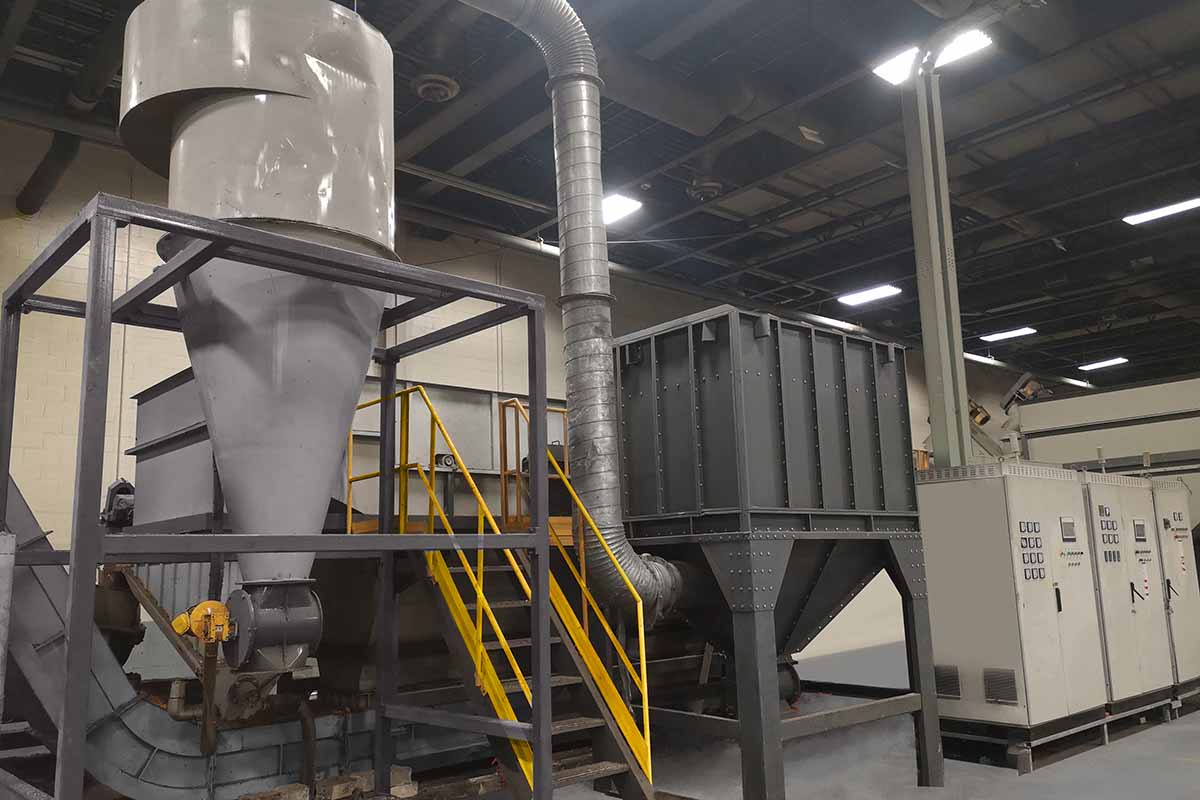
Owl Electronic Recycling operates a wash line handling e-plastics at its Pennsylvania facility. | Courtesy of Owl Electronic Recycling
Pennsylvania company Owl Electronic Recycling installed e-plastics sortation equipment in response to China’s scrap plastic import ban. That’s proved beneficial for the latest market disruption restricting the scrap plastic trade.
Longtime electronic scrap processor Owl Electronic Recycling installed e-plastics processing capacity in 2018 and has been processing the materials since then.
In recent weeks, as the Basel Convention amendment has taken effect and further disrupted the global market for low-grade plastics, including materials recovered from electronics, the company has received additional inquiries about its e-plastics capacity.
“We’ve gotten many phone calls from local recyclers in the area,” company founder Jason Wen said in an interview. “Everybody’s been struggling to export e-plastic.”
Because of the current export market disruption, Owl is considering further expansion with additional facilities, Wen said. The company is particularly interested in forming a joint-venture with a large partner, such as an OEM, he said.
China ban spurs initial move
Owl Electronic Recycling previously operated in Augusta, Ga., where it was shredding low-grade electronics and shipping the recovered e-plastics to China, Wen said.
That business model continued until 2018, when China banned imports of unprocessed scrap plastic. As a result, Owl slowed its operations and made some substantial changes. The company closed its Georgia location and leased an industrial location in East Greenville, Pa. in mid-2018.
Along with the move, Owl purchased new equipment to expand its processing abilities and respond to the export turmoil. The company installed optical sorting and X-ray detection equipment as part of the e-plastics line. Owl also brought in electrostatic separation technology and color sensor equipment. The company in late 2019 published a video detailing its process.
Wen said the company processes household electronics, printers and other mixed electronics.
“We shred them, remove the metals and then the mixed plastics all go to a separator,” Wen said.
After sorting, the e-plastics are either pelletized on-site or sold as regrind. The facility handles and produces common e-plastic resins, including ABS, PS, PC and more.
“We ship to China, other countries, and domestic,” Wen said. Most of the market demand for e-plastics remains overseas.
Owl has a capacity to process about 20,000 tons of e-plastics per year, Wen said.
Challenges entering an emerging field
A growing number of North American processors are adding e-plastics sorting capabilities – beyond Owl, recent equipment installations have occurred at BoMET Polymer Solutions, Plastic Recycling, Inc., eCycle Solutions and Universal Recycling Technologies.
But the domestic capacity remains small due to the industry’s past reliance on export markets for these materials. Wen said there are several key challenges in getting into the e-plastics processing space. For example, he noted the composition of resins coming into his facility changes with every load of scrap electronics.
“Each bale is different,” Wen said.
That makes it hard to reliably predict what the e-plastics output will look like.
Putting together the e-plastics sorting line also proved challenging, Wen said. Complete e-plastics processing systems are rare, unlike turnkey processing systems for typical household plastics or scrap electronics. Instead, the company purchased individual sorting components and pieced together its own sorting line.
A version of this story appeared in E-Scrap News on March 4.
More stories about e-plastics
- E-plastics processor expands line of recycled board
- 3R Technology working on first US e-plastics site
- Authors address error in black plastic additive study